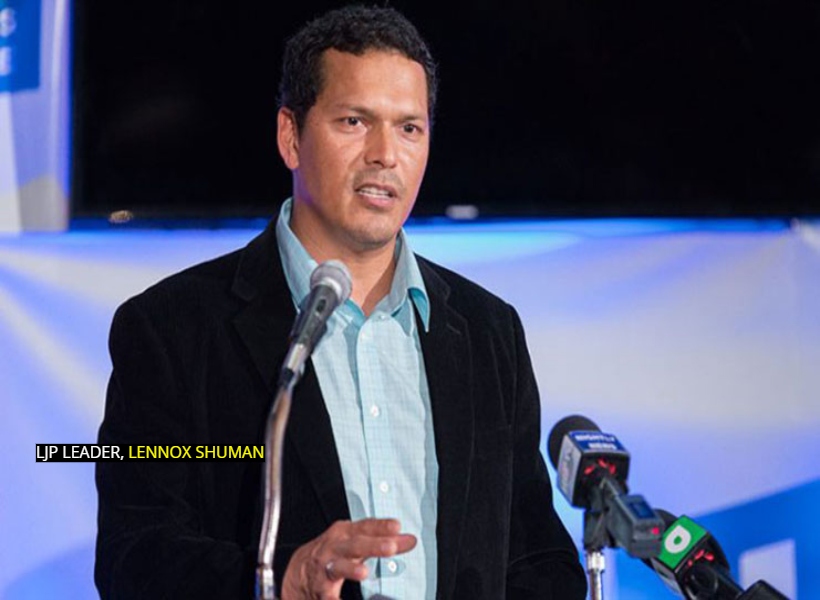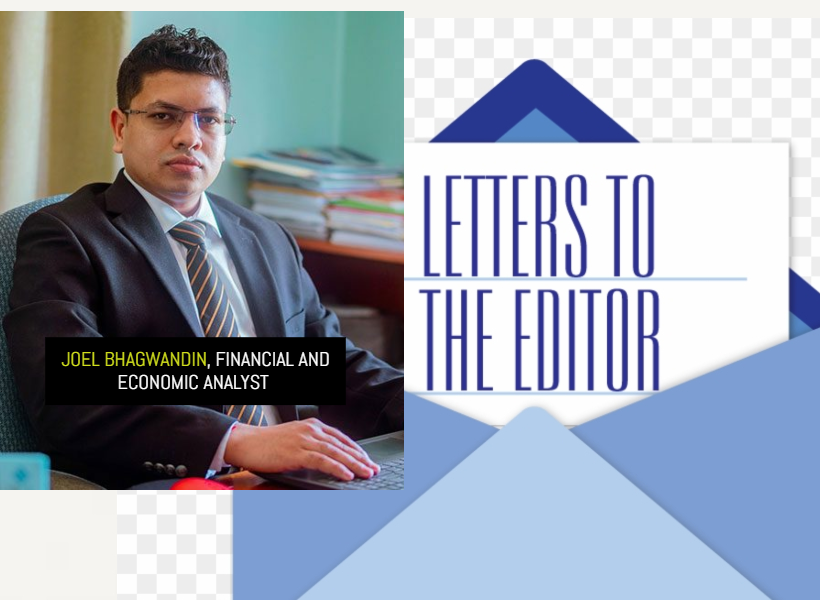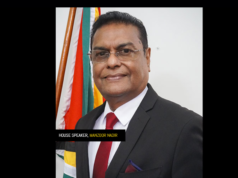Dear Editor,
Often, the role of the Private Sector Commission (PSC), and the other sectorial Business Support Organizations (BSOs), such as the Georgetown Chamber of Commerce (GCCI), the Guyana Manufacturing & Services Association (GMSA), and others, are either confused or blurred. But their core roles are in fact very distinct, though some of them may overlap.
The core functions of the Chambers are to deal with their sector specific issues, provide a platform for business and organizational development activities for their members, facilitate networking opportunities and advocacy.
On the other hand, the PSC is the apex private sector body, whereby the Governing Council constitutes the leadership of the sectorial and regional BSOs, and corporate members. The core function of the PSC is to deal with national cross-cutting issues–that is, issues that cuts across or affect all the sectors, such as energy, infrastructure, public policy, access to finance, etc.
Under the current Executive Leadership, particularly the Chairmanship of the PSC, the core mandate of the PSC has diminished to the extent where there is no coherent strategy, lack of coordination among its wider membership, and communication. As such, the GCCI, GMSA and other BSOs have been forced to deal with national cross-cutting issues on their own.
Unfortunately, this current situation will not yield the desired outcome considering that Guyana is the fastest growing economy in the region, if not the world; the country is at a critical juncture in its economic development and transformation, yet the private sector is unimaginably unprepared to deal with the current and forthcoming challenges and opportunities.
The current Chairmanship appears to have transformed the Private Sector Commission into an extension of his private/personal company, and I dare say, to the detriment of the wider membership of the PSC. The PSC no longer deals with cross-cutting issues in the manner it should. There is a specific situation, for example, that is of concern to me as well as my peers operating in the same space of business as I do, and who are part of the broader membership of the PSC.
The Chairman accidentally disclosed in a forum that he is in the process of negotiating with a “donor agency” to provide funding and support to private companies, to help improve their business plans for funding.
Regrettably, the Chairman did not see the value in consulting with the membership that provides this type of service to be a part of this initiative. It is reasonable to presume, therefore, that this initiative will be executed by a foreign entity and/or non-members of the broader private sector. Unapologetically, the Chairman refuses to disclose the details of this initiative. This is just one example. There are many more examples.
Evidence of the PSC’s poor performance under the current Chairmanship is demonstrated on the PSC’s website. When I was there, there was a quarterly newsletter published/disseminated among the members. The last published newsletter is dated June 2022, more than one year has elapsed and no other publication since.
Additionally, the PSC ought to be producing regular analysis, research and position papers on national cross-cutting issues, public policy etc. However, since I left and the leadership changed, the PSC has no position on anything, no research being done, no articles being published or anything of the sort.
Before starting my own company, I was fortunate to work with former PSC Chairs, namely Mr. Desmond Sears, Capt. Gerry Gouveia Sr., Nicholas Boyer, Paul Cheong, supported by other executives namely, Manniram Prashad, Eddie Boyer, Ramesh Dookhoo and Ramesh Persaud.
In those days, the PSC was a far more dynamic and inclusive organization―and it was on path of charting a strategic plan for the private sector, aligned with the national development priorities. Interestingly to note, during that time when I was an employee of the PSC under different leaderships as mentioned above, the current Chairman was part of the executive since then, and at that time he was the strongest defender of the former (APNU/AFC) government, the strongest critic of the incumbent government when they were in opposition, as well the strongest critic against anyone whose views were aligned with the then opposition that is now the incumbent government. Furthermore, during the election’s fiasco in 2020, he unsurprisingly became silent.
It’s been a long time since the current Chair was fighting to become the PSC Chair, because that portfolio confers upon the office holder, tremendous private sector power, influence, access to decision makers, access to diplomats, first access to foreign missions and trade delegations etc.…and first access to undertaking all the business deals, while excluding others. Imagine this gentleman who holds the chairmanship of this good office advocated for a large Trinidadian conglomerate to apply for local content certificate, which is not even permissible under the Local Content Act.
Meanwhile, real private sector cross-cutting issues are treated in the most amateur and mediocre fashion, coupled with them being given the least importance on the agenda. Hereunder mentioned is one critical example.
For a long time, the private sector complained bitterly about access to financing. During budget consultations with the government, President Dr. Irfaan Ali has always challenged the private sector to be more innovative.
I recalled one time at a forum he challenged the private sector to set up a private sector development fund, and the government will match the amount. At the same forum the BSOs had indicated that among its collective membership, that there are projects ready for financing to the tune of US$200 million or G$40 billion. Ironically, the total private sector deposits in the banking sector is a whopping $545 billion, and to date, the combined private sector cannot create a fund that is 10% of the total private sector deposits.
It is actually very simple to execute. Imagine if the PSC initiates this process by working with the banks and the private sector players that have large cash balances on their balance sheets, that would be at minimum, $54 billion, and if the government matches that amount, a private sector fund of $108 billion can be easily developed and administered by one of the financial institutions.
Then, at another forum, the finance minister charged the private sector and the bankers, that whatever hindrances that may exist in the financial laws, to put together their recommendations, and the government will amend the financial laws accordingly to facilitate greater access to financing. To date, no work is forthcoming in this regard, and both of these events occurred almost two years ago.
Contrast the foregoing [unfortunate] ironic situation with history when the private sector was established back in 1992 by its founding fathers, such as the late [legendary] Dr. Yesu Persaud. In 1985, without the help of government, at a time when the country had no money and was virtually bankrupt, Dr. Yesu Persaud successfully mobilized funding to establish the Institute of Private Enterprise of Development (IPED), and Demerara Bank in 1994. Bearing in mind that pursuant to the Financial Institutions Act (1995), the minimum start up capital for a commercial bank is G$200 million.
Evidently, under the current chairmanship of the PSC, the private sector is poised to suffer great losses owing to the failure of the PSC to rise to the challenges, at the expense of self-interests, and effectively blatantly abusing of the office of the PSC’s Chairmanship.
Consequently, I believe it is imperative that the PSC’s Council request the Chairman to step down and/or move a no-confidence motion to have him removed. This is not the time for self-serving office holders to trample upon the private sector.
Yours respectfully,
Joel Bhagwandin
Director, SphereX Professional Services Inc.
Member of GCCI & GMSA.











